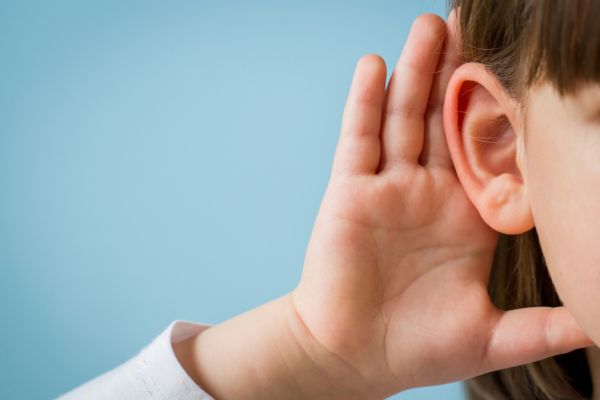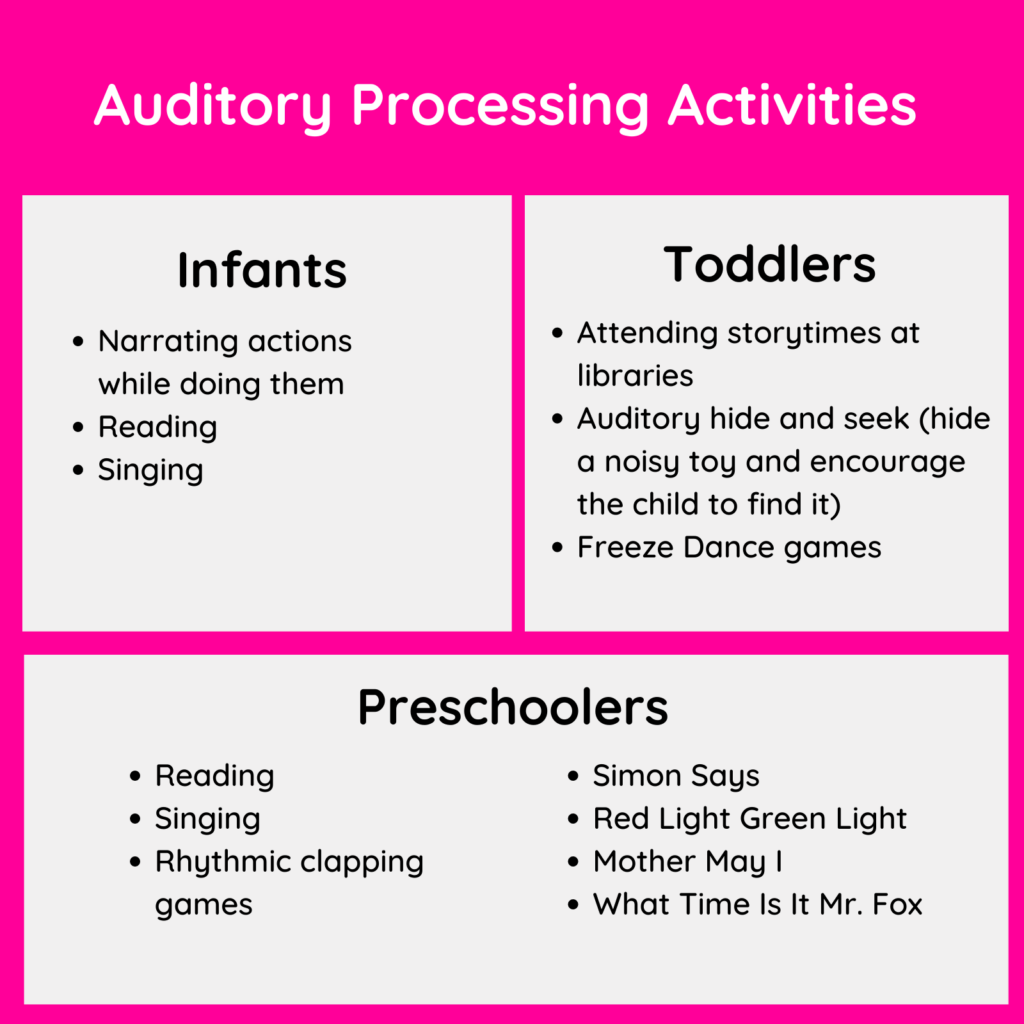
Auditory Processing is a pre-verbal skill. It is how the brain recognizes and understands sound information. There are four main parts of Auditory Processing
1: Auditory Awareness: This includes the ability to detect and sound and locate where the sound is coming from.
2: Auditory Discrimination: This includes the ability to tell the differences in sounds (I.e. human speech vs animal sounds) and the ability to tell the difference in sound patterns such as tone, pitch and volume.
3: Auditory Identification: This includes the ability to attach meaning to the sounds or speech being heard. (I.e. understanding that a dogs says woof or what a person means when they say, “Stop.”) and the ability to monitor and change one’s own speech (I.e. lowering your voice after you hear yourself yelling)
4: Auditory Comprehension: This gives us the ability to have a conversation, follow directions, follow a story and more!
Auditory Processing is extremely important for verbal communication. While children do learn to speak with visual cues, auditory processing is important too. Auditory processing is also important for literacy. Phonics and sound-symbol recognition (the ability to recognize that letters have sounds) is an important part of both literacy and auditory processing.
A child who struggles with auditory processing may not realize when they are being spoken to, or they may have trouble telling the difference between sounds in their environment. They may have trouble focusing on a particular noise or voice or they may struggle to attach meaning to a sound.
It’s important to note that auditory processing develops as children get older and develop, so if a child does struggle with any of these, it doesn’t necessarily mean they have struggle with auditory processing. It is always best to bring up any concerns with a pediatrician.
Caregivers can help build this skill by talking, singing, and reading to children from birth onwards. Caregivers can also play rhythmic clapping games, and games such as Simon Says, Red Light Green Light, Freeze Dance or auditory hide and seek (hide a noisy toy and encourage the child to find it)!

For more ideas for activities that develop auditory processing skills, visit rayzkidz.com/category/activities